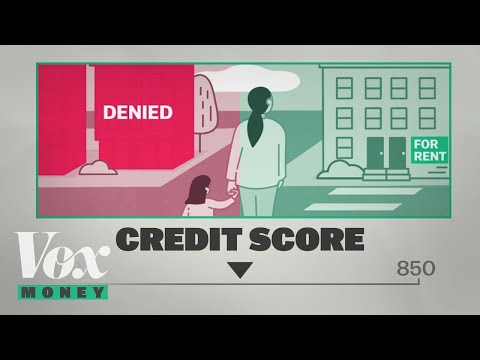In the ever-complex world of personal finance, it is crucial to grasp the nuances of our financial footprint. One aspect that touches the lives of nearly every consumer is credit: a ubiquitous factor influencing our ability to borrow money, secure housing, and sometimes even land a job. At the heart of our credit lies a pivotal concept that one must get a handle on – the credit bureau. So roll up your sleeves; it’s time we take a no-nonsense look at this integral component of financial savviness.

Deciphering the Credit Bureau Definition: A Deep Dive into ‘What Is Credit’

The DNA of Credit: Unraveling the Credit Bureau Definition
Talking about credit bureaus is vital because, like it or not, they affect significant parts of our lives. Let’s break it down: these bureaus are the gatekeepers of your credit reports. Their role? To collect the breadcrumbs of your financial history and craft a narrative that lenders use to decide if you’re good for the money.
Credit isn’t some mysterious concept; it’s a record – your monetary story told through numbers that signal how trustworthy you are with borrowed cash. Every credit card swipe, car loan, and mortgage payment can reflect on you. You see, when we talk about credit, we’re talking about trust, and a credit score is essentially a trust score.
These bastions of financial data are building an extensive profile on you, which ultimately could play a hand in the interest rates you’ll get handed or the thumbs up (or down) on a loan. They take into account your payment punctuality, how much money you’ve already borrowed, and how much ducats you can potentially borrow before you might become a precarious bet for lenders.

| Attribute | Details |
| Definition | An organization that collects, researches, and sells individual credit information. |
| Also Known As | Credit Reporting Agency (U.S.), Consumer Reporting Agency. |
| Purpose | To assist creditors in making decisions about extending credit or granting loans. |
| Data Collected | Payment history, credit utilization, credit amounts, account types, loan inquiries, etc. |
| Primary Activities | Compiling credit reports, selling credit information, monitoring credit histories. |
| Clients | Creditor institutions such as banks, credit card companies, lenders, and other financiers. |
| Reporting by Creditors | Voluntary; creditors can choose which credit bureau(s) to report to. |
| Major Nationwide Bureaus (US) | Equifax, TransUnion, and Experian. |
| Consumer Protection Agency | Consumer Financial Protection Bureau (CFPB) oversees and provides information on credit bureaus. |
| Reports Contain | Information on individual’s payment history, credit amounts and usage, inquiries, etc. |
| Note | Not all credit information is reported to every bureau, potentially leading to discrepancies. |
The Triumvirate of Credit Insight: Equifax, Experian, and TransUnion
Imagine three oracles of your financial fate – that’s Equifax, Experian, and TransUnion for you, each with its own set of scrolls containing your financial deeds and misdeeds. Here’s the skinny on each one:
Equifax: With its roots planted deep in the 19th century, this bureau has been compiling consumer credit data since sliced bread. They’ve seen it all, and boy, does their inventory detail your highs and lows.
Experian: A relative newcomer, if you can call a few decades that, but don’t let its youth fool you. Experian is as global as they come, operating in 37 countries and dealing in data like it’s going out of style.
TransUnion: The third member of this influential trio, TransUnion, rounds out the triumvirate. They’ve expanded their offerings over the years to include a cornucopia of financial analysis that goes beyond mere credit reporting.
Though they all sew the same kind of quilt, each has its unique pattern. They might collect similar information, but how they interpret and present it to potential lenders can differ. These differences can mean variation in the scores they cook up for you.

The Mechanics Behind Your Credit Reports
Here’s how it goes down: you take out a loan; the lender reports your borrowings and repayment behavior to one (or all) of these giants. It’s like they’re constantly updating a living document, an ongoing record of how you handle your finances.
Credit reports list out:
– Your identifying info (we’re talking names, addresses, the whole nine yards)
– Your credit accounts (think loans, credit cards, the works)
– Your payment history (yes, every late payment is noted)
– Public records like bankruptcies (they’re pretty thorough)
– Other inquiries into your credit (such as when you apply for a new credit card)
What they don’t include is information about your salary, your purchases, or your non-debt-related banking activity. Mistakes can happen – a payment incorrectly marked as late, for example – and those errors can really throw a wrench in the works for your creditworthiness.

Scoring the Game: How Credit Scoring Models Function
Understanding your credit score entails a bit of decryption. Different models are used to calculate this golden number, and each bureau has its secret sauce. For instance, when you’re pondering over What Is Fico Score 8, you’re considering the most widely used model, but remember that there’s also VantageScore, which goes about things a bit differently.
Here’s the crux: These models munch on your credit data—like how promptly you pay your debts, how much debt you’ve got compared to your available credit, and other tidbits—to spit out a score. These numbers, typically between 300 and 850, are there to telegraph one thing: risk.
Consumer Empowerment: Rights and Access to Credit Information
Ever heard the one about the little guy standing up to the big, bad credit bureaus? Well, it’s not just a tall tale. You’ve got rights, and wielding them can be the difference between a fair shot at good credit and being left in the dark. There’s a universe of laws designed to give you a peek at what these institutions are saying about you.
Here’s the scoop: You are entitled – legally and free of charge once a year – to glimpse your credit reports and take stock of what’s listed. It’s like having a backstage pass to the show that is your financial history. It’s where you see how to get your credit score. “Knowledge is power,” as they say, and you can exercise that power to better your credit.
On the Receiving End: How Lenders Utilize Credit Bureau Data
Bankers and lenders are like talent scouts poring over the stats of potential draft picks. They analyze your credit report and score like it’s the box score of your fiscal discipline. Their interest rates and the thumbs up or down on your loans hinge on this intel.
Your credit reports might as well be the crystal ball that financial institutions gaze into. They prod and probe every line, hunting for signs that you’re a solid bet. And let’s not overlook the growing trend in alternative credit data – think utility payments, rent history, and even streaming service payments – enriching the traditional playbook.
Credit Bureaus and Technology: The Evolving Landscape
Technology’s relentless march is reshaping credit reporting. Imagine credit bureaus wielding the power of big data and AI like a wizard with a crystal ball, working to conjure clearer pictures of your financial worthiness. This rapidly evolving landscape teases with the tantalizing promise of more accurate and inclusive evaluations.
However, with great power comes great responsibility. The trade-off of enhanced scrutiny is the ever-looming specter of data breaches and privacy concerns. In this age of tech, keeping your sensitive financial info under wraps is the modern-day quest for the holy grail.
Navigating the Maze: Disputing Errors and Protecting Your Credit
Errors in your credit report? Raise your hand if you like the sound of that. 🙋🏽♂️ Nope, didn’t think so. It’s critical, then, to know how to dispute inaccuracies. Imagine you’ve strolled into a western saloon, but instead of a revolver, you’ve got documented proof to shoot down those blunders tarnishing your name.
Keep an eagle eye on your reports and saddle up with this mantra: review, record, dispute. If your credit portrait’s been smeared, each credit bureau has its own trail to set things straight – often online or by mail.
Then there’s credit protection. Think of it like a superhero’s shield against villains like identity theft that want nothing more than to take your credit for a nefarious joy ride. Be vigilant, and don’t let your guard down.
A Glimpse into the Future: Credit Bureaus and Industry Trends
Peering into the future, we face transformative winds shaping the industry. A reimagined credit landscape could well be on the horizon, spurred by changes in data privacy laws and evolving consumer behavior. The playing field may even welcome new players, daring to disrupt the credit bureau’s age-old monopoly. Stay tuned, because the winds of change are a-blowing.
Conclusion: Synthesizing Credit Wisdom for Financial Empowerment
Looping back to where we started, it’s crystal clear – understanding how credit bureaus operate is a key puzzle piece in your financial toolkit. Picking up on the complexities can empower you to take the reins of your monetary narrative.
Being proactive with your credit is like regularly tending to a garden – it may be tedious at times, but the flourishing results make it all worthwhile. Keep an eagle eye on your credit, educate yourself on the roles these bureaus play, and you can navigate the mortgage landscape with confidence.
Mortgage Rater readers understand that when credit’s on the line, there’s no room for guesswork. It’s essential like your morning cup of coffee or that laptop tote you can’t leave home without. Equip yourself with the knowledge, own your financial journey, and the path ahead will be ripe with opportunity.
So, be vigilant, be proactive, and be empowered. Your credit is a reflection of you – make sure it’s a masterpiece.
Demystifying the Credit Bureau Definition
Ever find yourself scratching your head, wondering what in the world a credit bureau actually does? Well, so did I! Let’s unravel this mystery together with some fun trivia and interesting facts that’ll give us the lowdown on the credit bureau definition.
What on Earth Is a Credit Bureau Anyway?
Alright, so picture a brainy club where members are super into collecting and guarding treasure troves of credit info. 🕵️♂️ That, my friends, is essentially your credit bureau in a nutshell. These financial gatekeepers gather up all the juicy details on how you handle your money – like whether you pay your bills on time, have any outstanding debt, or if you’ve ever taken a nosedive into bankruptcy. Kinda makes you want to straighten up and fly right, doesn’t it?
Credit Bureaus: The Big Three
Now, hold your horses; we can’t talk credit without mentioning the Big Three. Yup, these are the head honchos of credit reporting: Equifax, Experian, and TransUnion. These three amigos have a heck of a job, keeping tabs on millions of consumers. It’s like they have their own must read Books on everyone’s credit habits, and let me tell you, those pages are chock-full of details!
But How Do I Get My Paws on My Credit Score?
Curious about your credit? You’re in luck! Figuring out How To get My credit score is as easy as a tap and a click.👆 Roll up your sleeves and get ready to dive into your credit health, just like plowing through a mystery novel. Who knows what twists and turns you’ll find in your credit story!
Making Those Credit Bureaus Work for You
Think of a good credit score as your golden ticket, the best way To earn money if you will, because it unlocks lower interest rates and sweet deals on loans and credit lines. Ka-ching! Better rates mean more cash stays snug in your pocket, and who doesn’t want that?
The Dark Horse: Specialized Credit Bureaus
Alright, folks, let’s not forget the lesser-known choo-choo trains on the credit tracks. There are, indeed, smaller credit bureaus out there that are a bit like Wwe Emma—they may not always be in the headline match, but man, do they pack a punch. These specialized agencies can focus on anything from your rental history to a payday loan repertoire. So, stay sharp! Your credit is in more rings than just the main event.
Hands Up! Protecting Your Credit Is Easier Than You Think
Now, don’t just throw your hands up Emoji in despair over your credit score. There are tons of ways to buff that number up, just like spiffing up a car before selling it. It’s all about showing you can handle your dough responsibly. So start budgeting like a boss, paying bills with the punctuality of a Swiss train, and watch your credit flourish like a well-tended garden.
Around the World: Credit Bureaus Abroad
Do other places have credit bureaus? You bet your bottom dollar! Though they might not be grabbing dinner at your local filipino restaurant, international credit bureaus exist all over the globe, gathering financial dossiers on folks just like you and me. It’s a worldwide web of numbers and reports, folks.
The Wrap-up on Credit Bureaus
Who knew the credit bureau definition could be so stuffed with fun facts and tidbits? Now, next time someone throws around credit talk at the water cooler, you can jump into the conversation with the confidence of a credit guru. Just remember, keeping your credit in tip-top shape isn’t just savvy—it’s essential for a smooth financial journey. So get out there, and make your mark on those credit reports like a rockstar! 🌟




